Frequently Asked Questions About Hair Transplant
Hair loss can be a huge problem. And this is a problem for both men and women. Although in most cases, men are the one’s who complain from this problem. There is a solution for hair loss. And that is hair transplant.
But people generally have tons of questions when it comes to FUE hair transplant. In this article, we will answer the most frequently asked questions about FUE hair transplant.
FAQ ABOUT HAIR TRANSPLANT
A hair transplant is a surgical procedure that moves healthy hair follicles from the donor area (usually the back or sides of the head) to thinning or balding areas.
Candidates are usually adults with permanent hair loss caused by male or female pattern baldness. Having enough donor hair is essential.
The two most common methods are FUE (Follicular Unit Extraction) and FUT (Follicular Unit Transplantation). FUE is more modern and minimally invasive, while FUT may be suitable for larger graft sessions.
The procedure is performed under local anesthesia, so patients usually feel minimal pain during surgery. Some mild discomfort may occur afterward.
Depending on the number of grafts, a hair transplant can take between 4 to 8 hours.
The number depends on the size of the balding area and the density desired. A consultation with a specialist determines the exact graft count.
Prices vary by country, clinic, technique, and number of grafts. In general, costs range from a few thousand to several thousand dollars.
Most patients return to normal activities within 2–3 days. Full recovery of the scalp and hair growth takes several months.
Initial growth starts after 3–4 months. Full results usually appear within 9–12 months.
Transplanted hair is permanent because it comes from areas resistant to hair loss. However, natural thinning may still occur in non-transplanted areas.
Possible side effects include swelling, redness, itching, infection, or temporary shock loss. Serious complications are rare with experienced surgeons.
Shock loss is temporary shedding of transplanted or surrounding hair after surgery. It usually grows back within a few months.
Patients are advised to sleep with their head elevated for the first few nights to reduce swelling and avoid pressure on grafts.
Yes, women with female pattern hair loss or thinning can also benefit from hair transplants.
FUE extracts and implants follicles separately, while DHI (Direct Hair Implantation) uses a special implanter pen for direct placement, offering more control over angle and density.
Results are generally permanent, as transplanted follicles are resistant to balding. Lifelong hair growth is expected.
Some patients may need multiple sessions if the bald area is large or if density needs to be improved.
Modern techniques provide natural results. In the first weeks, redness or scabbing may be visible, but once healed, it looks like natural hair growth.
Success rates vary between 90–95% when performed by skilled surgeons and when patients follow aftercare instructions.
Look for experienced surgeons, before-and-after results, patient reviews, hygiene standards, and transparent pricing.


